Spanish peanuts, with their unique taste and crunchy texture, have been a favorite snack for many. These peanuts are not only delicious but also packed with nutrients that offer numerous health benefits. In this article, we will delve into the history of Spanish peanuts, explore their nutritional profile, and discover the various culinary uses that make them a versatile ingredient. History of Spanish Peanuts: Spanish peanuts, also known as red-skinned peanuts, belong to the botanical group Arachis hypogaea. The name “Spanish peanuts” can be traced back to the 19th century when these peanuts were commonly grown in the southern United States, particularly in the state of Georgia. The Spanish peanut variety is distinguished by its small size, red skin, and two kernels per shell, making it a popular choice for snacking and culinary purposes.
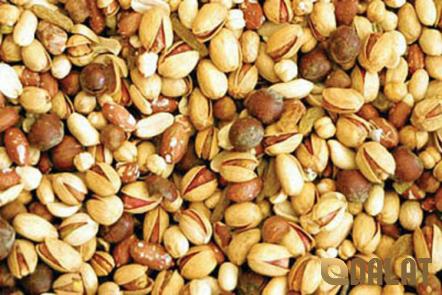
.
 Nutritional Benefits of Spanish Peanuts: Spanish peanuts are a nutrient-dense food that offers a range of health benefits. These peanuts are an excellent source of protein, making them a great option for vegetarians and vegans looking to meet their protein requirements. In addition to protein, Spanish peanuts are rich in essential nutrients such as folate, niacin, magnesium, and phosphorus. One of the key nutritional benefits of Spanish peanuts is their high monounsaturated fat content, which is known for its heart-healthy properties. Monounsaturated fats can help lower bad cholesterol levels (LDL) and reduce the risk of heart disease. Spanish peanuts also contain antioxidants such as resveratrol and vitamin E, which help protect cells from damage caused by free radicals. Spanish peanuts are a good source of dietary fiber, which plays a crucial role in promoting digestive health and regulating blood sugar levels. The fiber content in Spanish peanuts can help prevent constipation, lower cholesterol levels, and reduce the risk of developing type 2 diabetes. Culinary Uses of Spanish Peanuts: Spanish peanuts are a versatile ingredient that can be used in a variety of culinary applications. One of the most popular ways to enjoy Spanish peanuts is as a simple snack. These peanuts can be roasted and salted for a crunchy and flavorful treat that is perfect for snacking on the go. In addition to snacking, Spanish peanuts can be incorporated into both sweet and savory dishes. Spanish peanut butter is a delicious alternative to traditional peanut butter, offering a slightly different flavor profile and texture. Spanish peanuts can also be used in desserts such as peanut brittle, cookies, and energy bars for an extra crunch and nutty flavor. For savory dishes, Spanish peanuts can be used in stir-fries, salads, and curries to add a crunchy element.
Nutritional Benefits of Spanish Peanuts: Spanish peanuts are a nutrient-dense food that offers a range of health benefits. These peanuts are an excellent source of protein, making them a great option for vegetarians and vegans looking to meet their protein requirements. In addition to protein, Spanish peanuts are rich in essential nutrients such as folate, niacin, magnesium, and phosphorus. One of the key nutritional benefits of Spanish peanuts is their high monounsaturated fat content, which is known for its heart-healthy properties. Monounsaturated fats can help lower bad cholesterol levels (LDL) and reduce the risk of heart disease. Spanish peanuts also contain antioxidants such as resveratrol and vitamin E, which help protect cells from damage caused by free radicals. Spanish peanuts are a good source of dietary fiber, which plays a crucial role in promoting digestive health and regulating blood sugar levels. The fiber content in Spanish peanuts can help prevent constipation, lower cholesterol levels, and reduce the risk of developing type 2 diabetes. Culinary Uses of Spanish Peanuts: Spanish peanuts are a versatile ingredient that can be used in a variety of culinary applications. One of the most popular ways to enjoy Spanish peanuts is as a simple snack. These peanuts can be roasted and salted for a crunchy and flavorful treat that is perfect for snacking on the go. In addition to snacking, Spanish peanuts can be incorporated into both sweet and savory dishes. Spanish peanut butter is a delicious alternative to traditional peanut butter, offering a slightly different flavor profile and texture. Spanish peanuts can also be used in desserts such as peanut brittle, cookies, and energy bars for an extra crunch and nutty flavor. For savory dishes, Spanish peanuts can be used in stir-fries, salads, and curries to add a crunchy element.
..
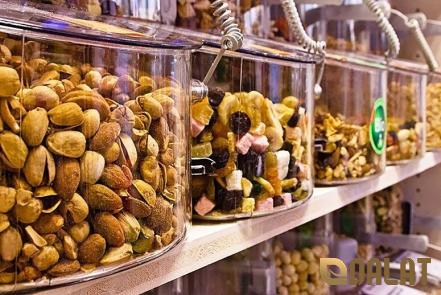 They can also be ground into a fine powder and used as a coating for fried chicken or fish, adding a unique twist to classic recipes. When it comes to baking, Spanish peanuts can be mixed into bread, muffin, and cookie dough for added texture and flavor. They can also be used as a topping for cakes and cupcakes, providing a crunchy contrast to the soft, moist cake crumb. Conclusion: Spanish peanuts are not just a delicious snack but also a nutritious ingredient that can enhance a wide range of dishes. From their rich history to their impressive nutritional profile and diverse culinary uses, Spanish peanuts have solidified their place in the world of nuts. Whether enjoyed on their own or used in recipes, Spanish peanuts are sure to add a delightful crunch to any eating experience. **Health Benefits of Spanish Peanuts:** In addition to the general nutritional benefits mentioned above, Spanish peanuts have specific health benefits that make them a valuable addition to a balanced diet. The high protein content in Spanish peanuts can aid in muscle repair and growth, making them an excellent post-workout snack for individuals looking to replenish their energy levels. Spanish peanuts are also a good source of plant-based iron, which is essential for the production of red blood cells and the prevention of anemia. Iron plays a vital role in transporting oxygen throughout the body, supporting overall energy levels and cognitive function. Furthermore, Spanish peanuts contain vitamin B6, which is important for brain health and cognitive function. Vitamin B6 helps in the production of neurotransmitters such as serotonin and dopamine, which are essential for mood regulation and overall mental well-being. The magnesium content in Spanish peanuts is beneficial for muscle and nerve function, as well as supporting bone health. Magnesium is involved in over 300 enzymatic reactions in the body, playing a crucial role in energy metabolism, protein synthesis, and muscle contractions. Moreover, Spanish peanuts are a great source of plant-based antioxidants such as resveratrol and vitamin E.
They can also be ground into a fine powder and used as a coating for fried chicken or fish, adding a unique twist to classic recipes. When it comes to baking, Spanish peanuts can be mixed into bread, muffin, and cookie dough for added texture and flavor. They can also be used as a topping for cakes and cupcakes, providing a crunchy contrast to the soft, moist cake crumb. Conclusion: Spanish peanuts are not just a delicious snack but also a nutritious ingredient that can enhance a wide range of dishes. From their rich history to their impressive nutritional profile and diverse culinary uses, Spanish peanuts have solidified their place in the world of nuts. Whether enjoyed on their own or used in recipes, Spanish peanuts are sure to add a delightful crunch to any eating experience. **Health Benefits of Spanish Peanuts:** In addition to the general nutritional benefits mentioned above, Spanish peanuts have specific health benefits that make them a valuable addition to a balanced diet. The high protein content in Spanish peanuts can aid in muscle repair and growth, making them an excellent post-workout snack for individuals looking to replenish their energy levels. Spanish peanuts are also a good source of plant-based iron, which is essential for the production of red blood cells and the prevention of anemia. Iron plays a vital role in transporting oxygen throughout the body, supporting overall energy levels and cognitive function. Furthermore, Spanish peanuts contain vitamin B6, which is important for brain health and cognitive function. Vitamin B6 helps in the production of neurotransmitters such as serotonin and dopamine, which are essential for mood regulation and overall mental well-being. The magnesium content in Spanish peanuts is beneficial for muscle and nerve function, as well as supporting bone health. Magnesium is involved in over 300 enzymatic reactions in the body, playing a crucial role in energy metabolism, protein synthesis, and muscle contractions. Moreover, Spanish peanuts are a great source of plant-based antioxidants such as resveratrol and vitamin E.
…
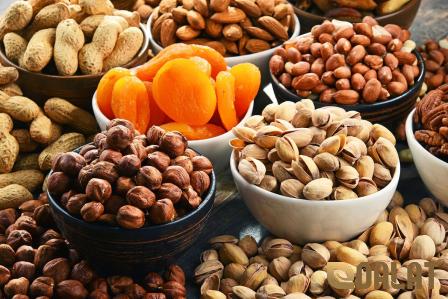 These antioxidants help protect cells from oxidative stress and inflammation, reducing the risk of chronic diseases such as heart disease, cancer, and neurodegenerative disorders. **Buying and Storing Spanish Peanuts:** When purchasing Spanish peanuts, look for unshelled peanuts that are free from cracks and discoloration. Shelled Spanish peanuts should be dry and have a consistent red color. To ensure freshness, buy Spanish peanuts from reputable sources and check the expiration date on packaged peanuts. To store Spanish peanuts, keep them in an airtight container in a cool, dry place away from direct sunlight. Proper storage will help maintain the flavor and crunchiness of the peanuts for an extended period. Refrigerating Spanish peanuts can help prolong their shelf life, but be sure to bring them to room temperature before consuming to enhance their texture and taste. **Cooking Tips for Spanish Peanuts:** – Roasting: To roast Spanish peanuts, preheat your oven to 350°F (175°C). Spread the peanuts in a single layer on a baking sheet and roast for 10-15 minutes, stirring occasionally, until they are lightly golden brown. Allow the peanuts to cool before serving. – Peanut Butter: To make homemade Spanish peanut butter, blend roasted Spanish peanuts in a food processor until smooth. Add a pinch of salt and a drizzle of honey for added flavor. Store the peanut butter in a sealed jar in the refrigerator for up to two weeks. – Salad Topping: Sprinkle chopped roasted Spanish peanuts on top of salads for added crunch and nuttiness. They pair well with leafy greens, roasted vegetables, and vinaigrette dressings. – Trail Mix: Mix roasted Spanish peanuts with dried fruits, seeds, and a touch of dark chocolate for a nutritious and satisfying trail mix. This portable snack is perfect for hiking, road trips, or midday munching.
These antioxidants help protect cells from oxidative stress and inflammation, reducing the risk of chronic diseases such as heart disease, cancer, and neurodegenerative disorders. **Buying and Storing Spanish Peanuts:** When purchasing Spanish peanuts, look for unshelled peanuts that are free from cracks and discoloration. Shelled Spanish peanuts should be dry and have a consistent red color. To ensure freshness, buy Spanish peanuts from reputable sources and check the expiration date on packaged peanuts. To store Spanish peanuts, keep them in an airtight container in a cool, dry place away from direct sunlight. Proper storage will help maintain the flavor and crunchiness of the peanuts for an extended period. Refrigerating Spanish peanuts can help prolong their shelf life, but be sure to bring them to room temperature before consuming to enhance their texture and taste. **Cooking Tips for Spanish Peanuts:** – Roasting: To roast Spanish peanuts, preheat your oven to 350°F (175°C). Spread the peanuts in a single layer on a baking sheet and roast for 10-15 minutes, stirring occasionally, until they are lightly golden brown. Allow the peanuts to cool before serving. – Peanut Butter: To make homemade Spanish peanut butter, blend roasted Spanish peanuts in a food processor until smooth. Add a pinch of salt and a drizzle of honey for added flavor. Store the peanut butter in a sealed jar in the refrigerator for up to two weeks. – Salad Topping: Sprinkle chopped roasted Spanish peanuts on top of salads for added crunch and nuttiness. They pair well with leafy greens, roasted vegetables, and vinaigrette dressings. – Trail Mix: Mix roasted Spanish peanuts with dried fruits, seeds, and a touch of dark chocolate for a nutritious and satisfying trail mix. This portable snack is perfect for hiking, road trips, or midday munching.
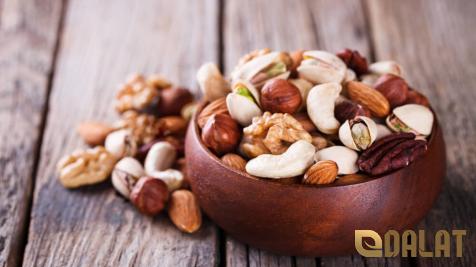
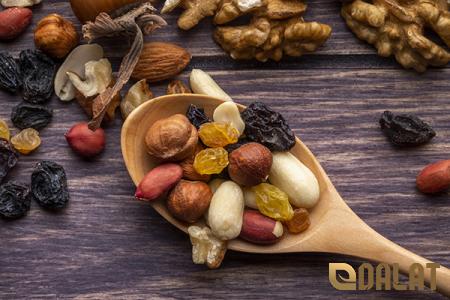
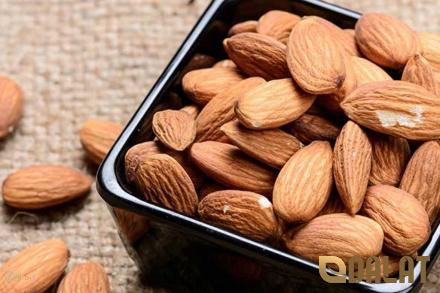
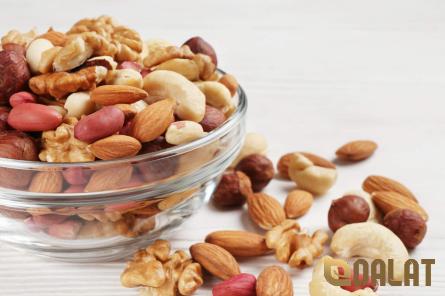
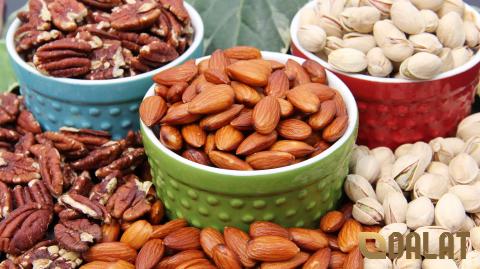
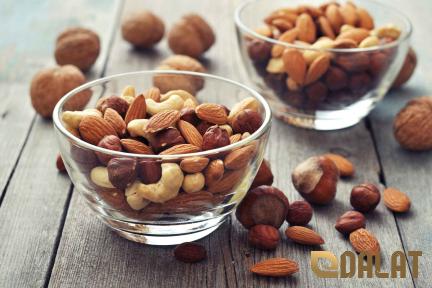
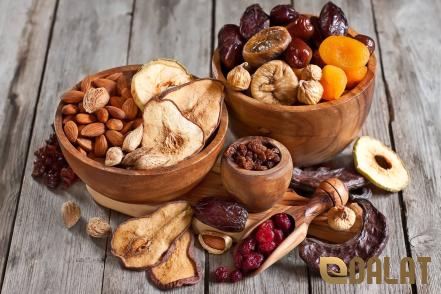
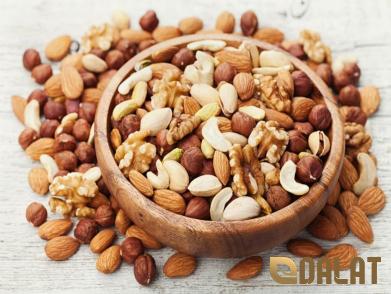
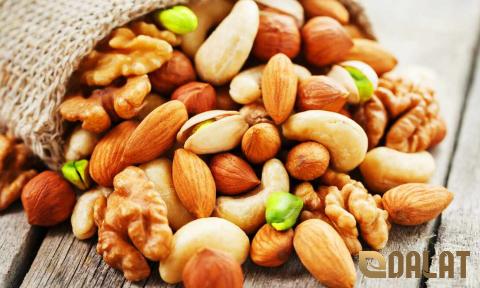
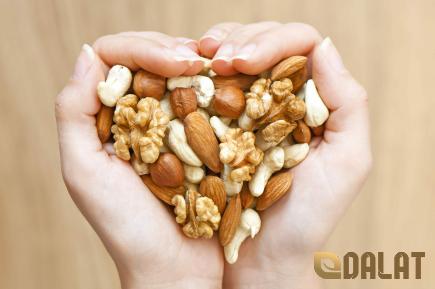
Your comment submitted.